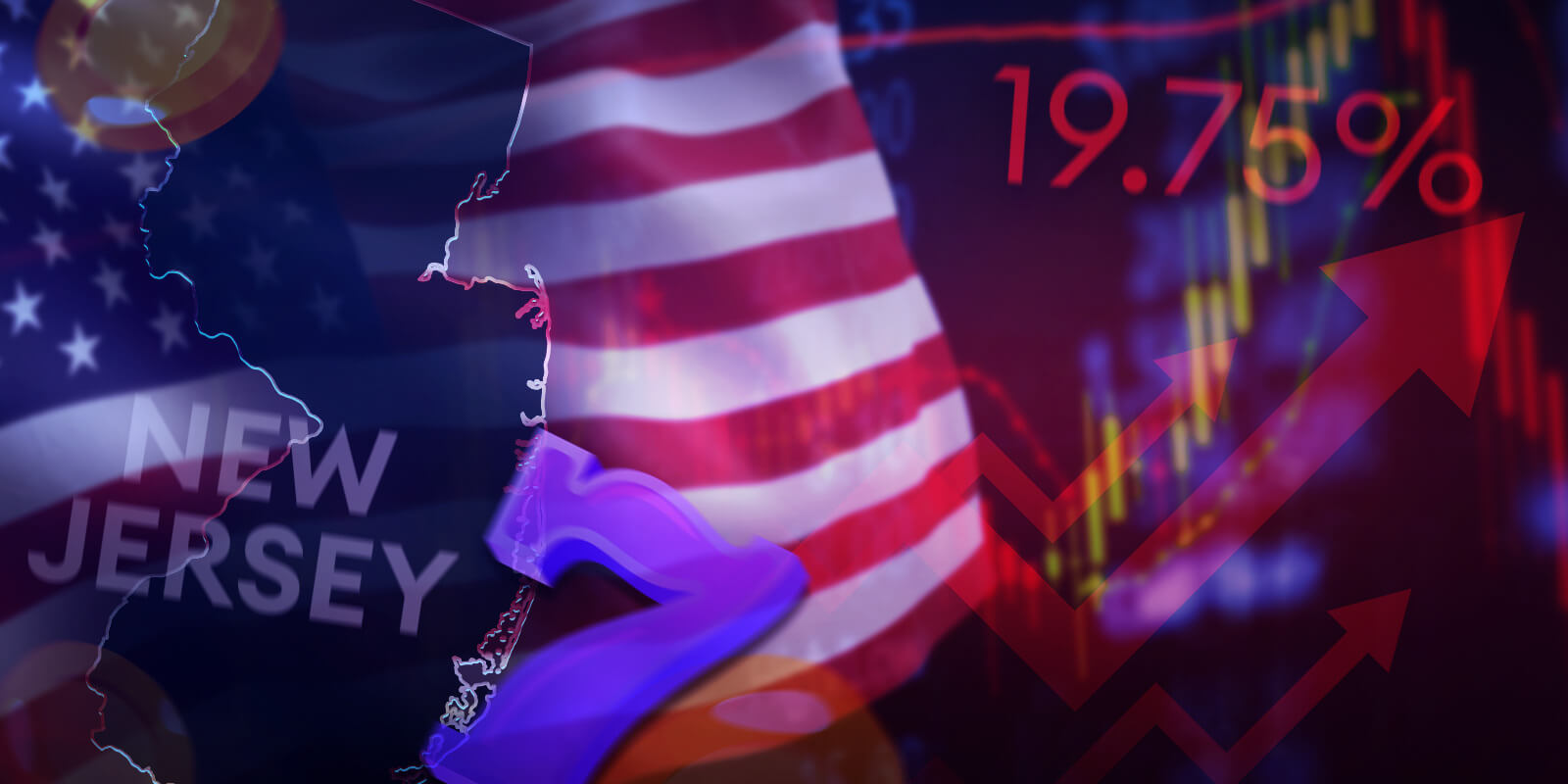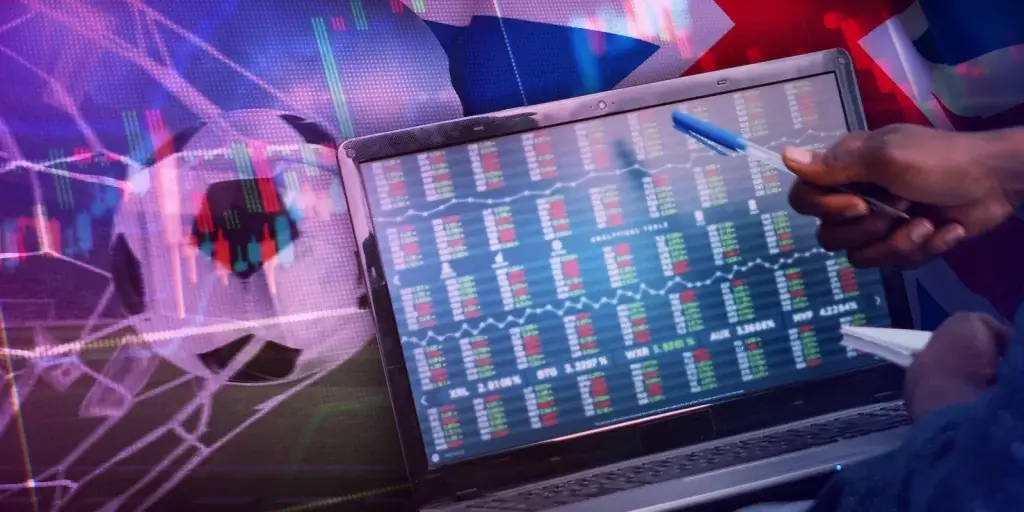New Jersey Implements Major Online Gambling Tax Increase

Affiliate Disclosure : We earn a commission from partners links on BetterGambling. Commissions do not affect our editors' reviews, recommendations, or ratings.
New Jersey’s Governor Phil Murphy signed a new law that raises the tax rate on online gambling to 19.75%. The new tax rate affects all forms of online gambling, including casino games, sports betting, and daily fantasy sports.
Previously, the tax rates were 13% for online sports betting and 15% for casino games. Now, everything is taxed at the same higher rate. While the increase is aimed at bringing in more revenue for the state government, it could change the experience for people who gamble online.
Be It Casinos or Sportsbooks, Everything is Affected
| Type of Gambling | Previous Tax Rate | New Tax Rate | Increase |
|---|---|---|---|
| Online Sports Betting | 13% | 19.75% | +6.75% |
| Online Casino Games (iGaming) | 15% | 19.75% | +4.75% |
| Daily Fantasy Sports | 10.5% | 19.75% | +9.25% |
The tax increase passed through both parts of New Jersey’s government, but it wasn’t an easy process. It went through a tough vote in both houses. The Assembly voted 45-33 to approve it, while the Senate passed it with a 25-14 vote. Most Democrats voted for the increase, while most Republicans voted against it.
New Jersey lawmakers pass Bill A5803 increasing tax rates on online gambling revenue. Gaming revenue in the state increases in May. #NewJersey #OnlineGambling #TaxRates #GamingRevenuehttps://t.co/PVfiwAJPDd pic.twitter.com/jTjS8OvnMQ
— Focus Gaming News (@FocusGamingNews) July 2, 2025
As part of the same legislation, New Jersey also banned sweepstakes casinos completely. These were online games that used a different system to avoid gambling laws, but the state decided they were too similar to real gambling and shut them down entirely. The ban was passed with strong support in both the Senate (34-5) and Assembly (69-10-1).
New Jersey has raised tax rates on online casinos, sports betting, and daily fantasy sports as part of the new state budget.
These changes reflect a shift toward increased gaming revenue, aligning with broader state tax updates.
Full story: https://t.co/K9iGcT7r6D— Lineups US (@Lineups_US) July 3, 2025
Revenue Impact and Government Projections
Governor Murphy first wanted to raise the tax rate to 25%, which would have brought in about $402 million in extra money for the state. The compromise rate of 19.75% will bring in less, but still a significant amount.
If you thought Murphy’s suggestion is high, wait until you hear of the bill introduced by the State Sen. John McKeon (D-Essex/Passaic) in March 2025. The bill wanted to increase the tax rates to 30% (double the previous one), something that operators like BetMGM and FanDuel were strongly opposed to.
That didn’t deter the governor from signing the new law as he saw it as a key aspect in the budget for the 2026 financial year.
The Targeted Revenue Increase
The projected revenue increase from the tax hike is as below:
| Revenue Source | Expected Impact | Notes |
|---|---|---|
| Sports Betting Tax | +52% increase | From 13% to 19.75% |
| Online Casino Tax | +32% increase | From 15% to 19.75% |
| Daily Fantasy Sports | +88% increase | From 10.5% to 19.75% |
| Total State Revenue | Millions more per year | Exact figures not yet released |
Is It The Same in Other States?
New Jersey isn’t the only state raising taxes on online gambling. Many others are looking at gambling as a way to bring in more money.
| State | Gambling Tax Rate | Sports Betting Tax Rate | Notes |
|---|---|---|---|
| New Jersey | 19.75% | 19.75% | Recent increase from 13–15% |
| Illinois | Per wager tax ($0.25–$0.50) | Per wager tax | Tax based on the number of wagers |
| Louisiana | Variable | Variable | Recent tax increases |
| Other States | Varies | Varies | Some states still have lower rates |
From the table above, it’s clear that New Jersey’s rates are quite reasonable compared to some states. Pennsylvania taxes online slot games at 54%, which is much higher than New Jersey’s 19.75%. New York has the highest sports betting tax at 51%, while Nevada keeps it low at 6.75%.
Illinois has taken a different approach by taxing each bet placed rather than taking a percentage of profits. They charge $0.25 for each of the first 20 million bets a company takes and then $0.50 for each bet after that.
This shows a clear trend of states asking gambling companies to pay more as the market grows. As more people bet online, states are making sure they get a bigger share of the money.
Sources
- Office of the Governor | Governor Murphy Signs Fiscal Year 2026 Budget into Law
- NJ Governor Signs Bill Hiking Tax For Online Sports Betting – Law360
- New York Takes A Gamble With 51% Tax On Online Sports Betting
- New Illinois laws, taxes starting July 1 include single use plastic restrictions, tipped minimum wage increase, vape tax – CBS Chicago
- @FocusGamingNews Post on X
- @Lineups_US Post on X
Recommended from BetterGambling

Gaming Corps Lands MrQ and Buzz Bingo Deals: Major UK Casino Content Expansion
The Swedish gaming company Gaming Corps made two big content deals this month that will help it get a bigger share of the UK market in December 2025. These arrangements added its catalogue of slots and instant-win games to the MrQ and Buzz Bingo platforms, which together serve over one million British players. The company, […]
1 month, 3 weeks ago2 min
Football Betting Market Size & Trends in the UK: 2025 and Beyond
Online sports betting in the UK pulls in £2.4 billion a year. Add land-based gambling and the total jumps to £15.6 billion. Betting isn’t just a trend anymore. It’s part of everyday life. Latest UKGC data shows 9% of the country’s bets are online. That’s nearly 6 million people placing around 290 million bets each […]
1 month, 3 weeks ago6 min casino-guides
casino-guidesUltimate Guide to UK Casino Wagering & Game Contributions
Casino bonuses in the UK might look like easy money, but once you’ve claimed one, you often realise there’s more to it than meets the eye. The main catch? Wagering contributions. Not all games help you clear the bonus equally. Why? Some barely count. Others don’t count at all. At BetterGambling UK, we’ve worked inside […]
1 month, 3 weeks ago6 min
How to Clear Blackjack Bonuses Without Getting Flagged or Banned by Casinos
You found a tempting casino bonus and you’re ready to play some blackjack with it. But not so fast. Most players don’t realise that blackjack, despite being a staple table game, is one of the riskiest picks when it comes to bonus wagering. The catch? Online casinos closely monitor how you wager bonuses on blackjack. […]
1 month, 4 weeks ago5 min Casino Blogs
Casino BlogsI Deposited on Five New Sites Just to Compare How They Treated My Data
I signed up at 5 new casino sites, deposited the same amount, and played the same way, all to answer one question: How fast do online casinos track, profile, and act on your data? What I found wasn’t just aggressive marketing. It was real-time behavioural profiling, subtle pressure tactics, and data systems that knew more […]
1 month, 4 weeks ago5 min